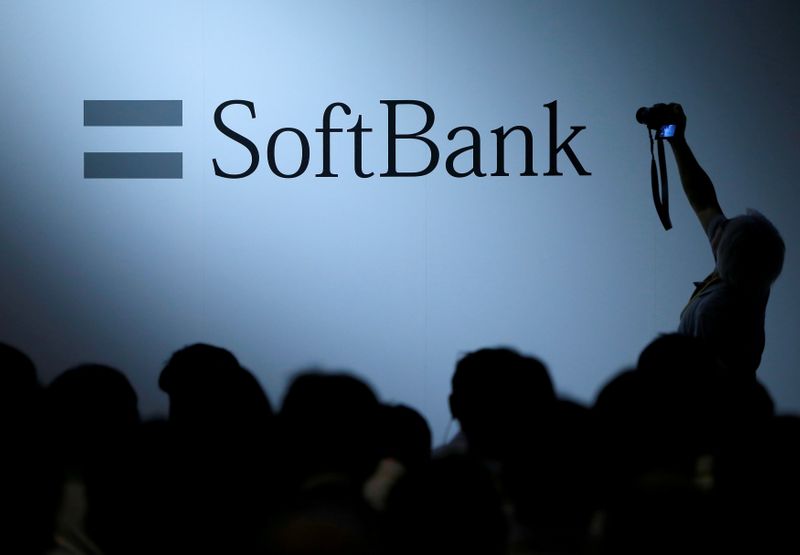By Sam Nussey
TOKYO (Reuters) - SoftBank Group Corp (T:9984) shares fell as much as 11.6% on Wednesday, with its market capitalization dipping below the value of its domestic telco, as uncertainty grows over its management of a portfolio of unproven startups.
The tech conglomerate's market cap fell to a low of 6.84 trillion yen ($64 billion), below SoftBank Corp's (T:9434) 7.1 trillion yen, reflecting the depth of investor scepticism over Chief Executive Masayoshi Son's assertions his tech bets are back on track and as the coronavirus outbreak roils markets.
Concern was exacerbated with sources telling Reuters that SoftBank is considering pulling out of a $3 billion bid to buy additional shares in its biggest soured bet, office-sharing firm WeWork, in what would be a major U-turn after it was forced to bail out the startup.
Last week, SoftBank announced a $4.8 billion share buyback amid fragile markets, a move S&P Global Ratings said "raises questions over its commitment to financial management" and prompted a revision in its outlook for the company to negative.
"We believe SoftBank's aggressiveness in pursuing growth and managing its finances makes its financial standing weak," S&P said.
Unlike peers such as Toyota Motor Corp (T:7203) and Uniqlo parent Fast Retailing Co (T:9983), SoftBank's Son has spent much of his cash pile investing in overseas startups, many of which analysts believe are exposed to a looming slowdown.
"We think no other company in Japan is as indebted and as exposed to the economic downturn as SoftBank," Amir Anvarzadeh, market strategist at Asymmetric Advisors, wrote in a note.
SoftBank last month said it would pledge shares in its domestic telco as collateral to raise up to $4.5 billion, reflecting its falling back on established portfolio businesses for cash as its $100 billion Vision Fund struggles to raise capital for a successor fund.

"For the next few months, cash is going to be the single most important factor as only cash will allow affected businesses to survive the very sharp (but temporary) decline in their revenues," tech analyst Richard Windsor wrote in a note.